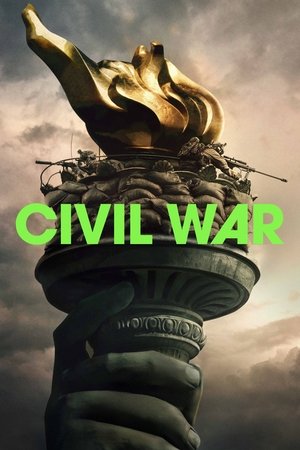
Civil War
Cautionary tales often have some of the most significant impact when brought to life on the big screen, and that’s certainly the case with the latest offering from writer-director Alex Garland. The filmmaker’s gripping tale of a quartet of journalists (Kirsten Dunst, Wagner Moura, Stephen McKinley Henderson, Cailee Spaeny) covering a civil war in a dystopian version of America of the near future follows the reporters as they make their way from New York to Washington via a circuitous route that shows them all sides of this nightmarish scenario. Essentially a road trip film, “Civil War” provides the principals and viewers with an array of images and situations graphically depicting what’s left of the US as a distraught population attempts to make sense of the circumstances and find ways to survive. The purpose of the protagonists’ journey is to secure an interview (likely the last one) with a corrupt, egomaniacal President (Nick Offerman) as rebel forces close in on the capital. They set out on this treacherous odyssey despite the dangers involved both in making the trip and in their roles as journalists, who are looked on with suspicion and have been accused of fanning the flames of the hostilities. While some have complained that the film doesn’t provide enough social and political background about the conflict, I submit that this consideration is fundamentally unnecessary: Garland is making an unadulterated statement here that, when the bullets start flying, ideology won’t matter and no one will care, a point driven home with chilling clarity over and over. The madness that consumes the population is all that’s important at that juncture, one driven by bald-faced hostility on steroids both among the combatants and the overzealousness of the reporters in seeking to “get the story,” no matter what. In achieving this end, the filmmaker holds nothing back, making this an often-difficult watch, one definitely not for the squeamish or faint of heart. But the picture’s message is one of grave importance, especially in today’s trying, polarized climate. We’d be wise to pay attention to what’s being said in this important work, handily the best – and most troubling – release of 2024 thus far.
